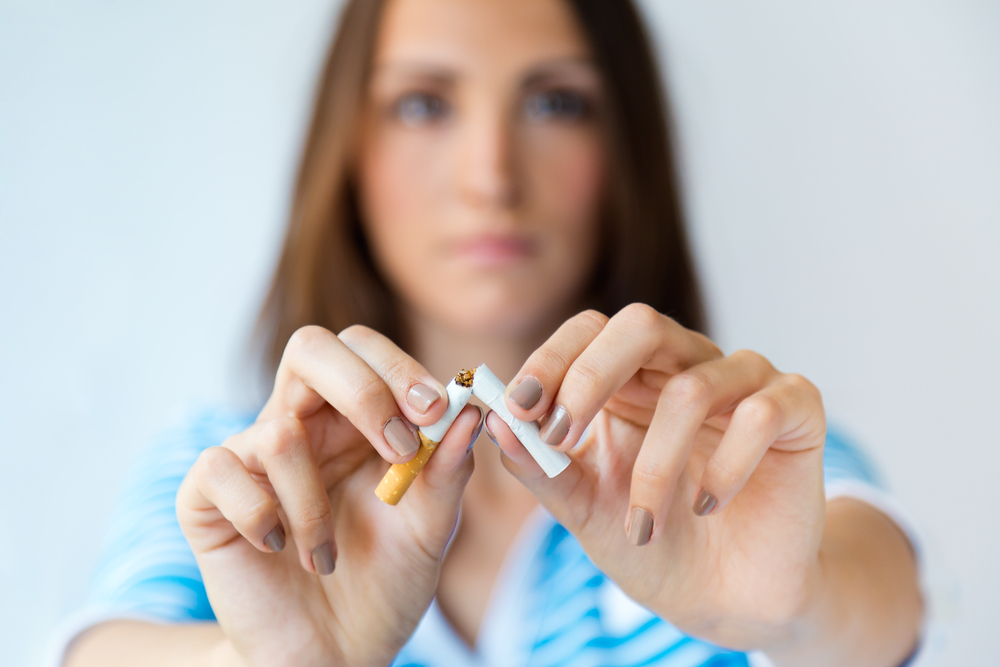
It’s common knowledge that smoking cigarettes and using tobacco products can be extremely harmful to your health in a variety of ways. Even so, every 1 in 5 adult Americans consume tobacco, 65 million adults suffer from gum disease, and half of those are cigarette smokers.
Smoking, in general, is a risk, and smoking with braces is a recipe for disaster. Read on to learn why smoking and braces just don’t mix.
What Happens When You Smoke
Smoking tobacco products constrict blood vessels in the gums, bone, and periodontal ligaments. Smoking also promotes bone loss and gum disease, which will require extensive treatment by a periodontist to reverse any damage. Continuing to smoke after getting braces can be detrimental to your oral health by leaving behind unsightly stains on the surface of your teeth once your orthodontic treatment is complete, in addition to other significant repercussions.
How Smoking Affects Orthodontic Treatment
Prolonged Treatment Time
Smoking has a direct impact on the performance of your orthodontic treatment. The nicotine content in a single cigarette can develop stains on the teeth, and this can be especially true if you are wearing clear braces. In the worst cases, smoking can also prevent the ability of braces properly aligning teeth.
Increased Risk of Developing Tooth Decay
Smoking reduces your mouth’s natural ability to fight tooth decay with your saliva. Saliva is critical to drive out stubborn acid that sticks to out-of-reach places. The bacteria-generated plaque often stays in the mouth if it’s not cleaned or rinsed away. With an increase in bacteria, and a decrease in saliva, your risk of tooth decay increases significantly.
Extra Cleaning
Regular smoking will quickly cause stains and discoloration to develop on the surface of your tooth enamel. This change in tooth discoloration can be especially apparent if you are undergoing orthodontic treatment. Once your brackets are removed, your teeth will have light-colored spots on each tooth that a bracket was placed. Additional cleaning and professional whitening treatments will likely be necessary to reverse the damage that smoking while wearing braces caused.
How Smoking Affects Your Oral Health
Smoking stains on your teeth are not your only health concerns that accompany the use of cigarettes. Other oral health problems that smoking can pose on your teeth include:
- Gum Disease – Bacteria and food debris often trigger gum disease. If not removed from your teeth, plaque will harden and form tartar or calculus. This buildup irritates the gums that surround the teeth. Smokers may not experience bleeding gums simply because of the lack of blood supply to their gum tissue, masking an indication of gum disease.
- Bad Breath – Smokers are left with bad breath when smoke particles enter the throat and lungs. A freshly smoked cigarette lets the smell linger in the lungs for hours, which is why smokers sustain a stale scent in their breath.
- Oral Cancer – Smokers make up 75% of people who have oral cancer. Smokers are 35 times more likely to develop oral cancer if you smoke forty cigarettes and drink four alcoholic drinks per day. Oral cancer is also expected to lead to damage to the side of the tongue, the floor of the mouth, radiotherapy, and tooth extractions.
- Cavities – Tobacco use can increase cavities around the gum line, making it easier for infections to weaken the teeth.
Damage From Smoking is Reversible
The damage smoking cigarettes cause to your mouth is reversible if you abstain from smoking during orthodontic treatment. Your oral health and overall lung function will improve together over time after quitting. It is always recommended that smokers quit the habit before beginning orthodontic treatment, so you can avoid smoking while undergoing treatment.
Are you a parent concerned about a teen’s smoking habits? Thomas Orthodontics is here to help in any way we can. Schedule a consultation appointment with us today, and we can do our part in explaining to your teen why braces and smoking just don’t mix!





